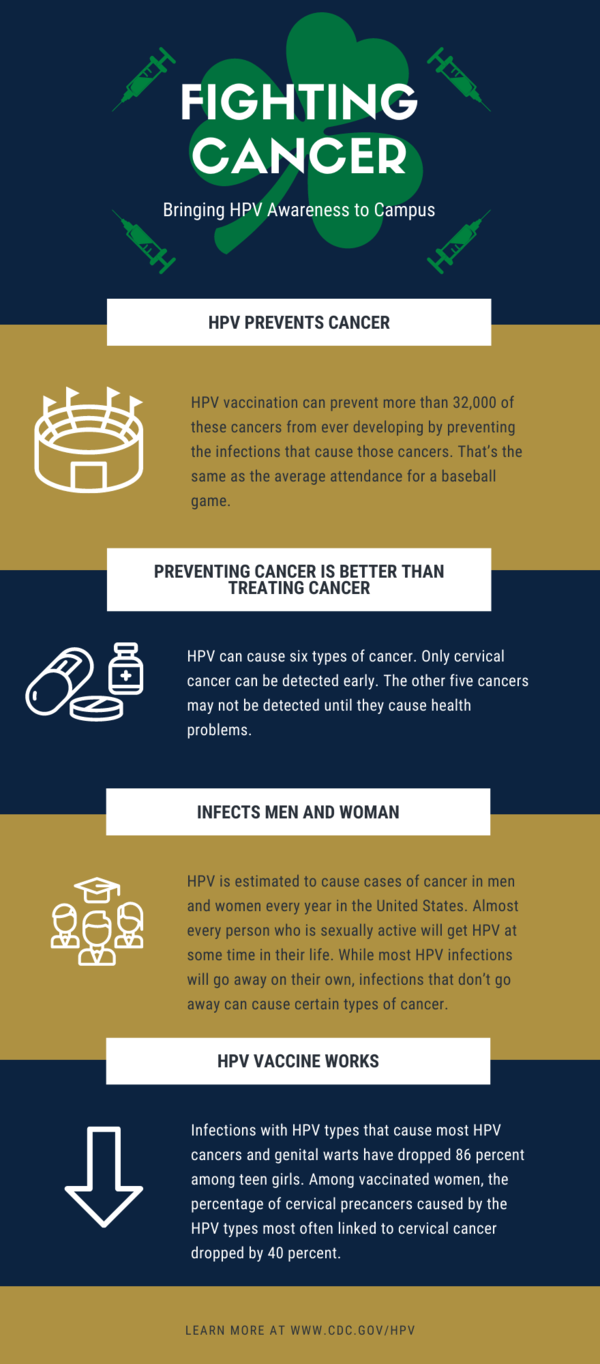Sexual Health Resources
Faithful to its Catholic heritage and in strong support of contemporary Catholic teaching, the University of Notre Dame is dedicated to caring for students and their medical needs without compromising what the Church upholds in its teachings concerning sexuality and sex.
In keeping with the University’s mission, UHS makes every effort to provide all students with caring, non-judgmental, professional assistance and support. While the University calls its unmarried students to practice sexual abstinence, it remains committed to caring for the whole student, providing medical counsel and services to students who are sexually active.
UHS also acts in accordance with state and federal laws protecting a student’s right to privacy. All medical services are confidential. A student’s information is safe with us, and we will not share it with anyone outside of the healthcare community without the student’s permission.
Resources related to sexual health are available to all Notre Dame students through UHS. Students are encouraged to make an appointment with a provider by calling (574) 631-7497. Students with urgent medical needs can be evaluated by a nurse and referred to a provider as needed.
About Sexually Transmitted Infections (STIs)
STIs are viruses, bacteria, and parasites transmitted through sexual contact, including vaginal, oral, or anal sex. Anyone who is sexually active is at risk for acquiring or transmitting an STI. In many cases, though, you can reduce or eliminate your risk by abstaining from sex or using safer sex practices.
What You Can Do
You can abstain from all sexual activity, including vaginal, oral, or anal sex, outside the context of a committed marital relationship.
Communicate openly and honestly with your healthcare provider and sexual partner about STI testing and sexual history. If you choose to be sexually active, you can reduce your risk of contracting STIs in the following ways:
- Consider getting a sexual health exam prior to initiating a sexual relationship.
- Form a committed relationship in which partners agree to be sexually faithful.
- Refrain from using drugs and alcohol in potentially intimate situations. The use of drugs and alcohol decreases your motor skills, your communication skills, and your capacity for wise judgment, all of which are necessary for full and free consent to having sex and exercising safer sex practices.
- Use condoms that are labeled for STI protection. Natural skin or animal membrane condoms are not effective for STI protection.
- Get evaluated at least once a year. Include STI testing as part of a regular medical check-up, especially if you have recently changed partners or have had more than one partner in the last year.
- Learn the common symptoms of STIs and seek medical help promptly if any suspicious symptoms develop or if your sexual partner suspects having an STI.
HPV is Preventable
You can and should get vaccinated against HPV, which can be contracted by anyone, often prior to their initiating wise decisions concerning sexual health.

Getting Tested
Most STIs occur without symptoms.
STI testing is available to Notre Dame students through University Health Services. Students may make an appointment with a provider by calling (574) 631-7497. Testing varies depending on patient symptoms and behavioral risks.
LabCorp, the diagnostic laboratory in Saint Liam Hall, processes all specimens and can either bill a student’s insurance directly or make discounted payment arrangements for students who choose to pay in cash.
UHS acts in accordance with state and federal laws protecting a student’s right to privacy. All medical services are confidential. A student’s information will not be shared with anyone outside of the healthcare community without the student’s permission.
Getting Treatment
In addition to testing, UHS also provides treatment to students who test positive for an STI. Most STIs do not go away by themselves; many can be cured with medication. Some, including viral STIs, cannot be cured, although medications may be available to decrease symptoms and suppress the virus.
It is important to note that any treatment given to you will be most effective if you:
- Follow instructions in the prescribed manner.
- Avoid sexual contact until you have completed the entire treatment, even if your symptoms disappear before the treatment is complete.
- Notify your current sexual partner (and any previous recent partners) so they can be treated as well.